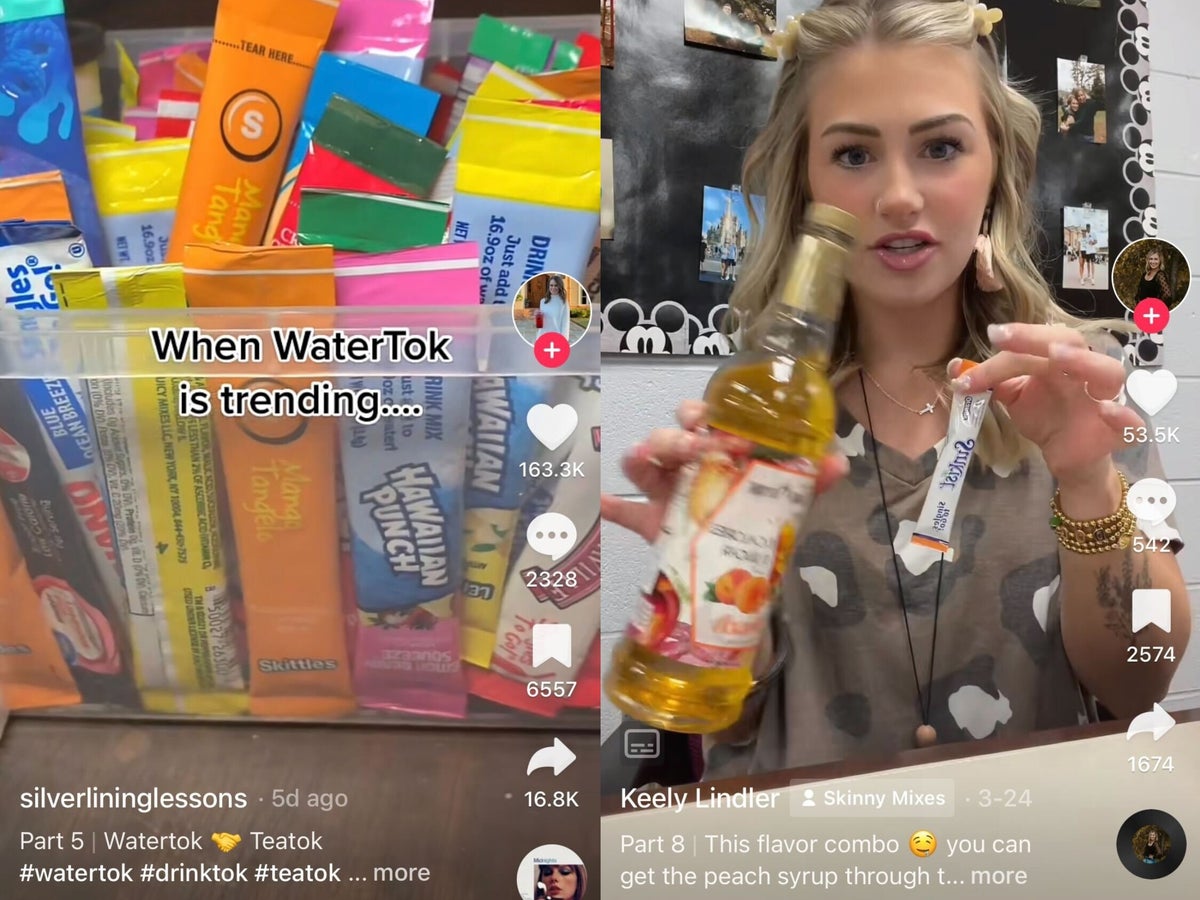
Food and drink trends on TikTok constantly come and go, but one particular trend has prompted warnings from health experts and dentists.
The recent trend, known as #WaterTok, sees influencers creating flavoured and sweetened water recipes in order to make hydration appear more appealing.
The hashtag #WaterTok has garnered more than 103.7 million views at the time of writing, but has sparked confusion and concern across social media.
Many of these influencers encourage followers to add candy-flavoured powders, such as Starburst or Skittles, as well as flavoured syrups to create “piña colada water”, “birthday cake water”, “peach ring water” and more.
Often, these drinks are made in large quantities and are consumed from big, colourful bottles, such as the popular 1.13-litre stainless steel Stanley tumblers.
Dr Abdul Matin Azizi, principal dentist at Harley Private Dental, told The Independent that these additives could have a significant impact on the drinker’s teeth depending on their ingredients and usage.
“Some powders and syrups may contain high levels of sugar or citric acid that can erode tooth enamel and cause tooth decay,” he warned.
“Sugar can feed the bacteria in the mouth, leading to the production of harmful acids that attack teeth. Citric acid can also erode tooth enamel, causing tooth sensitivity and pain. Food dyes, which are also included in many such products, can stain teeth over time.”
He urged people who enjoy drinking the flavoured waters to do so “in moderation” and to rinse their mouths out afterwards.
But consuming large amounts of sugary water could affect more than teeth. Dr Al-Imran Khan, GP at Mercuri Health, told The Independent that the idea of flavoured water was “originally invented by post-bariatric patients to increase their hydration” but is now going viral, with potentially negative effects on health.
“Artificial sweetener or flavouring ingredients such as those used in powders and syrups to be mixed with water can lead to many health issues including cardiovascular disease or possibly early onset diabetes,” he warned.
Silvia Micheletti, a nutritionist at Rainbow Labs, added that while the drinks are marketed as a “healthy alternative to sugary drinks” because they believe flavoured water contains less sugar than juices or fizzy drinks, this is likely not the case.
“Look at the ingredients rather than the calories,” she said. “In fact, these artificial flavourings contain high levels of maltodextrins which are highly processed carbohydrates that are derived from starch.
“They are commonly used as food additives in many processed foods as a thickener, bulking agent, or sweetener. However, maltodextrins are quite similar to sugar and can cause a rapid spike in blood sugar levels, which may lead to health problems for some people such as weight gain, diabetes, fatty liver disease, atherosclerosis, mood swing, fatigue, autoimmune diseases, and cardiovascular disease.”
Instead of consuming flavoured water, Dr Khan advised: “If you need a bit of flavour in your water, try a slice of lemon or other natural ingredients, which are far healthier.”







